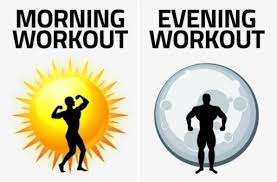Fast Weight Loss: Is It Safe or Dangerous?
Losing weight is a common goal for many people. However, the methods and timelines for achieving that goal can significantly impact your health, especially for women who may feel societal pressure to conform to certain beauty standards. According to Gallup, 57% of women often worry about their weight. While body acceptance is growing, many women are still seeking effective ways to change their body composition.
Although weight loss can have positive effects, pursuing it too quickly can lead to unintended consequences. Before embarking on your weight loss journey, it’s essential to understand the risks associated with rapid weight loss.
Common Weight Loss Myths
The weight loss industry is rife with misinformation. Many women are misled by “miracle” weight loss programs and “fast-acting” diets that promise quick results but often fail to deliver long-term success. These methods can be unhealthy and unsafe. The good news is that with awareness, you can focus on legitimate strategies for losing weight safely and effectively.
5 Risks of Rapid Weight Loss for Women
Understanding the potential dangers of rapid weight loss can help you navigate your weight loss journey more safely. Here are five critical risks to consider:
1. Eating Disorders
Modern beauty standards can distort perceptions of body image, leading some women to take drastic measures to lose weight. This pressure can result in eating disorders like anorexia and bulimia, which predominantly affect young women.
- Anorexia involves extreme caloric restriction and a fear of gaining weight, which can lead to severe malnutrition.
- Bulimia consists of binge eating followed by purging through vomiting or excessive exercise.
Both disorders can cause irreversible damage to the body and mind. It’s vital to seek help if you or someone you know is struggling with disordered eating.
2. Muscle Loss
While fat loss is the primary goal, rapid weight loss can lead to muscle loss as well. Research published in the Journal of Advanced Nutrition indicates that significant caloric restriction can result in losing both fat and muscle mass.
Maintaining muscle is essential for a healthy metabolism; muscle tissue burns more calories at rest than fat. To mitigate muscle loss, aim for moderate caloric reduction and incorporate strength training into your routine.
3. Excessive Dehydration
Rapid weight loss often leads to inadequate water intake, increasing the risk of dehydration. Signs of dehydration include:
- Persistent headaches
- Dark yellow urine
- Thirst
- Fatigue
- Muscle cramps
Staying hydrated is crucial for overall health and can help you avoid these symptoms during your weight loss journey.
4. Poor Nutrition
Restricting calories can result in nutritional deficiencies if not managed properly. Eating a variety of nutrient-dense foods is essential for fueling your body and maintaining overall health. Focus on incorporating:
- Fruits and vegetables
- Whole grains
- Lean proteins
- Healthy fats
These foods will provide essential vitamins and keep you feeling full, making your weight loss journey more sustainable.
5. Slower Metabolism
Drastically cutting calories can slow your metabolism as your body responds by conserving energy. This phenomenon, known as metabolic adaptation, makes it increasingly challenging to lose weight. Studies have shown that a reduction in caloric intake can lower your resting metabolic rate, which is the number of calories your body needs for vital functions.
To counteract this, prioritize regular exercise and consume nutrient-dense foods to keep your metabolism active.
Closing Thoughts
While there are additional risks associated with rapid weight loss, the five highlighted here are crucial for anyone considering a drastic weight-loss plan. Fortunately, healthy weight loss is achievable by following these guidelines:
- Avoid disordered eating patterns.
- Focus on building muscle.
- Stay hydrated.
- Prioritize nutrition-rich foods.
- Keep your metabolism active.
Before starting any weight loss program or diet, consult with your healthcare provider to ensure you’re making the best choices for your health.
Good luck on your weight loss journey! Remember, the path to a healthier you should prioritize your well-being over quick results.






